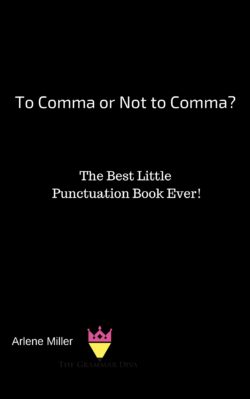 Grammar rules. Are there really any rules at all, or are there just guidelines and standards? Depends whom you ask. If you ask a grammar prescriptivist, they will tell you that there are rules — and please don’t break them. If you ask a grammar descriptivist, they will tell you there are standards, but when people begin to break a certain standard, then a new standard is born.
Grammar rules. Are there really any rules at all, or are there just guidelines and standards? Depends whom you ask. If you ask a grammar prescriptivist, they will tell you that there are rules — and please don’t break them. If you ask a grammar descriptivist, they will tell you there are standards, but when people begin to break a certain standard, then a new standard is born.
I lean toward prescriptivism.
This week and next, I will talk about some “rules” that are now becoming outdated, or modified, or allowed, or whatever you would like to call it.
- Remember Star Trek’s famous quote? To boldly go where no man has gone before (or something like that). Well, that is a split infinitive. An infinitive is a verb with to in front of it. Here the infinitive is to go. But as you see, the adverb boldly has boldly been stuck in there, splitting the infinitive. That used to be a no-no for some reason, but no longer. You don’t need to say To go boldly where no man has gone before OR Boldly to go where no man has gone before. Split to your heart’s content.
- Where are you at? Well, I would not recommend that you say that, but that question is an example of ending a sentence with a preposition. Prepositions are those little words like at, with, of, to, from, over, under.…there are lots of them. You can end a sentence with one, but in that example, you don’t need the at at all, so why put it there? Generally, we want to put a preposition at the end of a question beginning with whom: Whom are you going with? Whom are you giving that to? Whom are you waiting for? To some of us, it sounds a little awkward or stilted or overly formal to say With whom are you going? To whom are you giving that? For whom are you waiting? So in those cases, it is fine to end with the preposition if you like. However, Where are you at? Where are you going to? No. Your sentence is fine and complete without that ending preposition.
- So, as you see, I have started this sentence (and some others here) with a conjunction! Oh, no! Can we do that now? The coordinating conjunctions we are talking about here are and, but, so, yet, and maybe or We certainly start our sentences with conjunctions in conversation. I start some sentences with conjunctions in my books. Starting sentences with conjunctions is never necessary, but in informal writing, it is okay to do it — just don’t get carried away.
- So there. I have just written a sentence fragment. So there is not a sentence. Neither is For one day only. These are fragments — not complete sentences. You see them all the time in promotional writing, and of course in conversation. Here’s what I think about using fragments: You can break a rule as long as you know you are breaking it. So, if you know what a fragment is and you decide to use one for effect, go ahead. However, if you mean to write a sentence and you use a fragment because you don’t know the difference, that is a different story. If you are writing dialog, you will likely use fragments. If you are writing some type of promotional literature or ads, you will probably use fragments. If you are writing creative nonfiction, you may use fragments. If you are writing a formal letter or essay, trying to get into college or trying to get a job — well, I wouldn’t. Teachers sometimes mistakenly tell students not to start sentences with the word because. Of course, you can start a sentence with because. However, sometimes students will end the sentence and put a period before the sentence is complete, thus writing a fragment by mistake: Because the movie is playing so late. That is a fragment. Because the movie is playing so late, I don’t think I will be able to go. That is a sentence.
- If anyone wants a piece of pizza, they can take one. Okay, let’s delve into this landmine. Anyone is a pronoun. Pronouns can be either singular or plural, just like nouns. And just like nouns, singular pronouns take singular verbs; plural pronouns take plural verbs. Wants is singular (he wants, they want). So, we can assume anyone is also singular. Anyone, someone, no one, something, everything, everyone, everybody, someone, something, and somebody (among other such pronouns) are all singular. Moving along in that sentence, we see the word they. They refers to the same person as anyone, right? But they is plural, right? And if they and anyone refer to the same person/people, they should agree (both singular or both plural), right? Well, yes. So what are your choices, since the English language does not (yet) have a non-gender-specific third person pronoun (except it, which refers to things). If everyone assembled is female, you use she. If everyone is male, you use he. But what if such is not the case? Your choices used to include these: If anyone wants a pice of pizza, he or she can take one. If anyone wants a piece of pizza, he can take one (now unacceptable). If anyone wants a piece of pizza, he/she? (s)he? What? The best solution is to just rewrite the sentence to avoid the issue altogether, which is usually very easy to do: Anyone who wants a piece of pizza can take one. Take a piece of pizza! However, if rewriting doesn’t strike your fancy, you can now use they as a singular. But I wouldn’t personally do it.
Grammar Diva News
Tomorrow, Saturday, April 21, is the Redwood Writers Conference “From Pen to Published.” I will be attending and will be a coach for editing and publishing.
Going on sale on Amazon and Kindle (and likely elsewhere) next week. Special Kindle price while you stock up on your beach reading:
I have begun work on my next book, which will be out sometime this summer:
To Comma or Not to Comma? The Best Little Punctuation Book Ever!
(not the real cover- just playing!)





Some indeed say it is quite acceptable to end a sentence with a preposition and to begin one with a conjunction. I do not hold to that view. Consider the effect on society if we, willy-nilly, flout the timeless conventions that facilitate polite conversation. Social chaos and tumult will be our lot. No-one will understand what anyone else is saying. We’ll all end up speaking like Donald J Trump (71) Snr.
I actually agree with you completely! But….
As a reaction to those purists who contend that a sentence must never end with a preposition, I would consider them people up with I cannot put….
Yes! Thank you for the comment!! Or should I say – Thank you the comment for!
Being repetitious. We are all guilty of it. You know how someone might tell the same joke or the same story over and over again — and we listen without saying anything?
Thank God it’s acceptable again, particularly whamo jokes if/when they are told right. How do I know? A. Miller, novelist, said so in 2018 in a blog sent to many of the top writers in America.
I also sometimes repeat information I have given years before in my blog posts, but don’t tell anyone. Shhhhh….